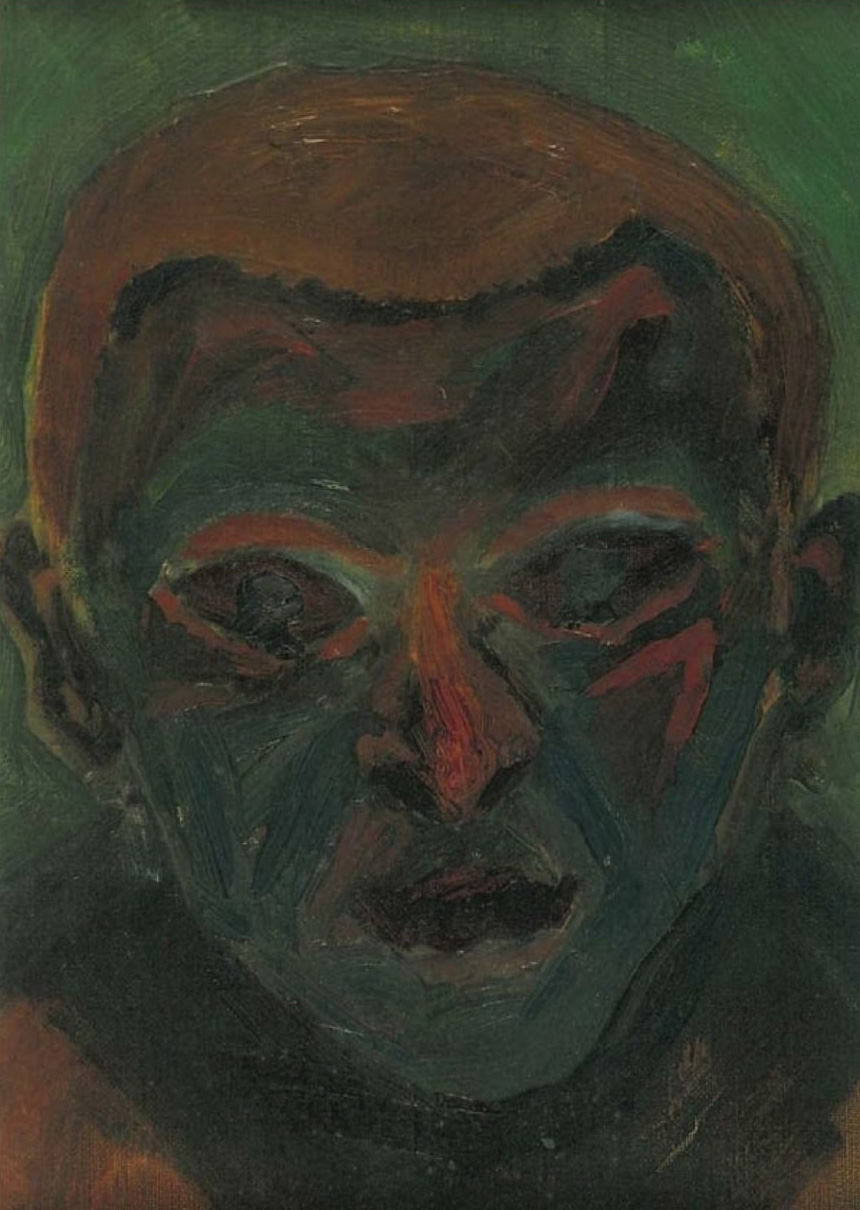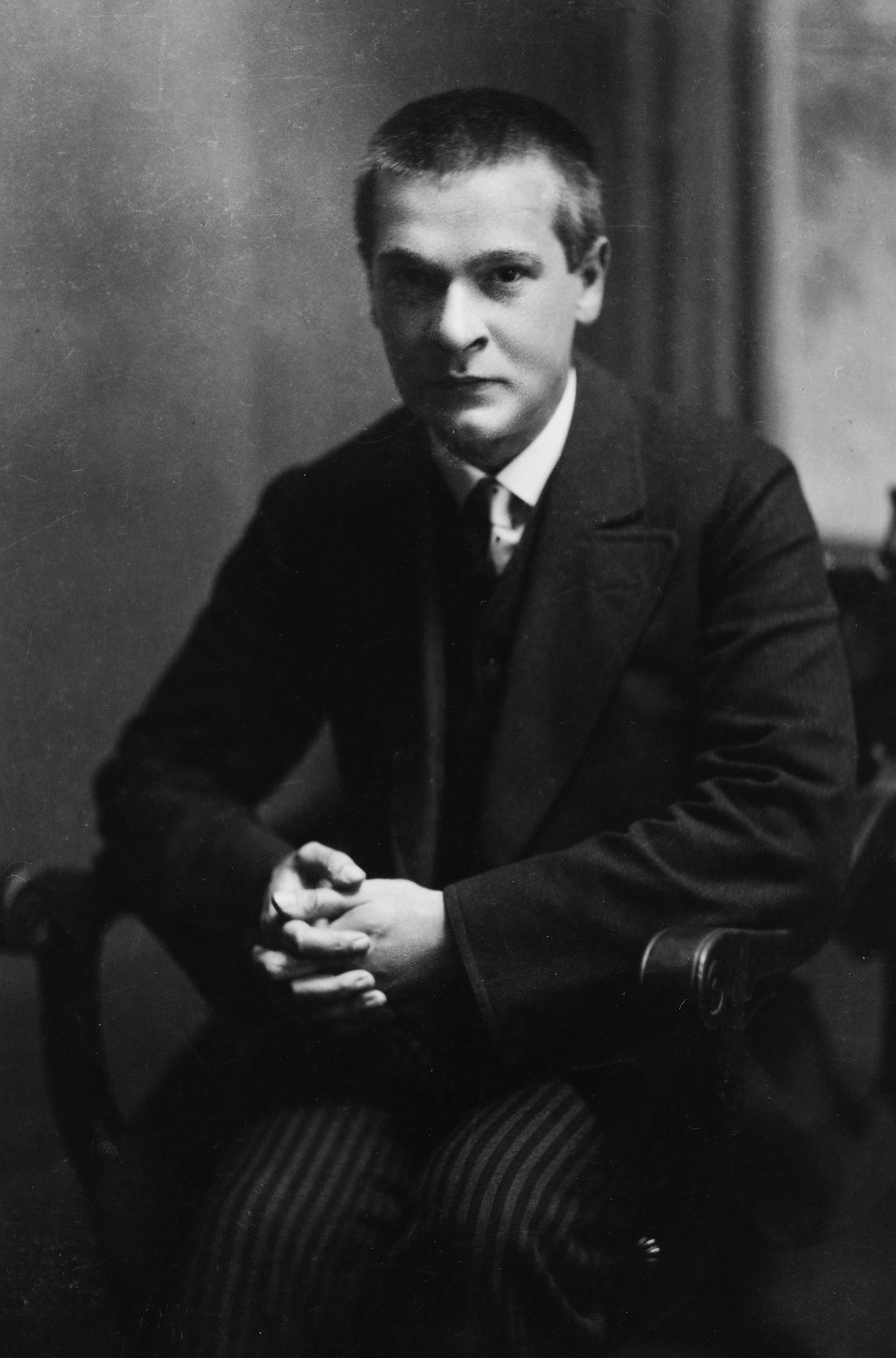Stanley Cavell liked to talk about the two myths of reading subscribed to by Western philosophers. “According to one myth the philosopher must have read virtually everything, at least the whole of Western philosophy, broadly conceived,” he wrote in his memoir, Little Did I Know (2010). The other myth specified that philosophers, pure thinkers that they are, should read virtually nothing. “Heidegger is an obvious exemplar of the former myth,” Cavell observed, “Wittgenstein of the latter.”
And yet, both philosophers, the voracious reader and the seemingly reluctant one, found themselves, at pivotal moments in their careers, turning to the arresting work of the early twentieth-century Austrian poet Georg Trakl (1887–1914). Not surprisingly, Wittgenstein and Heidegger responded to Trakl’s striking and still mysterious poems in sharply divergent—one might almost say opposite—ways. James Reidel’s recently completed three-volume translation of Trakl’s major work, timed to coincide with the centennial of the poet’s suicide, allows readers to speculate on what Heidegger and Wittgenstein (along with many other poetry-lovers) may have found so alluring.
Trakl’s poems have an imagistic clarity and seeming accessibility that may remind some readers of the 1960s “Deep Image” poetry of James Wright and Robert Bly, two of Trakl’s early translators. Trakl’s “pictorial manner,” as he described it in 1910, typically “forges together four separate image-parts in four lines of a stanza into a single impression,” as for example in the first quatrain of “Trumpets”:
Under clipped willow trees, where brown children play
And drive the leaves, trumpets sound. A churchyard awe.
Banners of scarlet drop through the maples’ mourning,
Riders along the rye fields, the abandoned mills.
There are difficulties almost immediately, however. The adjective Trakl applies to willows, verschnitten, allows for a range of meanings, from anodyne (“clipped” or “pruned”) to alarming (the translator Alexander Stillmark, no doubt aware that the word can also mean “castrated,” opts for “mutilated”). Similarly, Trakl’s Ein Kirchhofsschauer can yield either Reidel’s hushed “churchyard awe” or Stillmark’s creepier “graveyard shudder.” (Wright and Bly, translating together, ramped it up to “a quaking of cemeteries.”) Under repeated readings, Trakl’s words shift their meanings, like a piece of music in multiple performances.
So what is a poem like “Trumpets” about? The second quatrain, which mentions herdsmen singing and dancing at night, concludes: “Banners of scarlet, laughter, madness, trumpets.” Are military trumpets intruding on the pastoral realm of shepherds? Do the scarlet banners, as Reidel claims, warn of scarlet fever, another threat to the idyllic? Wahnsinn, madness, opens another interpretive direction: those mutilated willows and graveyards, and the twice-mentioned Trauer (sadness, mourning), suggest depression. Abandoned mills may even imply social trauma, an economic disruption of village life. Amid such competing meanings, the most common explanation for what Trakl’s poems are really about has gravitated toward biography.
In a late Dream Song, John Berryman summarized Trakl’s lurid life as “Drugs Alcohol Little Sister.” He was born into an upper-middle-class Protestant family in Salzburg, Mozart’s birthplace (and also that of Thomas Bernhard, a fervent admirer of Trakl). His father sold hardware; his mother was addicted to drugs. The children were placed in the care of an Alsatian nanny, under whose tutelage Trakl and his younger sister, Grete, a piano prodigy, spoke French and developed an intense, possibly incestuous relationship. Trakl survived his bumpy schooling, read Rimbaud, started taking drugs at fourteen, and wrote plays and poetry under those twin influences. He trained, perhaps predictably, as a pharmacist; in 1912, the year his first book of poems was published, he was assigned, in fulfillment of his military obligations, to a garrison hospital in the provincial capital of Innsbruck. There he became a regular contributor to Ludwig von Ficker’s Der Brenner (The Burner), a journal related in title and tendency to Karl Krauss’s Die Fackel (The Flame). Meanwhile, Grete’s career as a concert pianist was foundering, as she descended into alcoholism and a miserable marriage.
At the outbreak of World War I, Trakl was transferred to the Eastern Front. Assigned to oversee a makeshift ward in a barn near the battle of Gródek, in Poland, he found himself responsible, with limited medical supplies, for ninety grievously wounded soldiers. The horrific experience contributed to a mental breakdown, while also inspiring one of his greatest poems, “Grodek,” which deftly blends silence with violent imagery:
With evening the autumn woods sound
Of deadly arms, the golden plains
And blue lakes, over which the sun
Trundles hazier; the night envelopes
Dying warriors, the wild lament
Of their shattered jaws.
But silent in the willow-marsh gather
Red clouds, wherein an angry god dwells,
The spilt blood itself, lunar cold;
All roads empty into black corruption.
At the end of the poem, “the sister’s shadow” mysteriously appears, wandering, like one of Wagner’s Valkyrie, “through the still grove, hailing the ghosts of heroes.” The short “Lament,” another of Trakl’s powerful last poems, invokes “Sleep and death, the somber eagles,” before the “sister of a tempestuous despair” reappears.
Advertisement
Not surprisingly, Heidegger and Wittgenstein had radically divergent methods of reading such poems. Both philosophers saw their task as in some sense putting an end to philosophy, which both felt, though in differing ways, had gone astray. Heidegger believed that the whole tradition of Western philosophy, with its Platonic division of body and soul and its embrace of technology and mechanistic thinking, had left far behind some primal radiance and unity at the source, which he associated with pre-Socratic philosophy and with certain poets, like Trakl. Wittgenstein was also impatient with philosophy as traditionally practiced. “The real discovery is the one that makes me capable of stopping doing philosophy when I want to,” he wrote in the Investigations. “The one that gives philosophy peace.”
In a long essay translated as “Language in the Poem: A Discussion on Georg Trakl’s Poetic Work” (1953), Heidegger rejected biographical interpretation, claiming instead to be in search of what he called “the site,” the proper “placing,” of Trakl’s work. “To an age whose historical, biographical, psychoanalytical, and sociological interest is focused on bare expression, such a procedure must seem patently one-sided, if not wayward,” he wrote. Heidegger immediately made the sweeping claim that all Trakl’s poems are in fact fragments of one single poem. For his own elucidation, he chose lines from all over Trakl’s work, linked by such key words as “blue” or “sister” or (a big one) Untergang (descent).
Stitching together such fragments, Heidegger could argue that “Grodek” wasn’t really about war, but actually about the necessary end of a modern generation mired in Platonism, preparing the way for some new dawn. “All roads empty into black corruption” referred to such philosophical dead ends. The sister wasn’t really Trakl’s own sister, but some primal division into sexual difference. Heidegger’s totalizing—or totalitarian—approach was sharply questioned by Jacques Derrida, in a series of seminars conducted (though poorly documented) during the 1980s. According to the Heidegger scholar David Farrell Krell, Derrida thought that Heidegger claimed to find a unity in Trakl’s varied, ambiguous poetry that wasn’t there to begin with.
Wittgenstein’s response to Trakl’s poems was at the opposite extreme from Heidegger’s confident assertions. “I do not understand them, but their tone makes me happy,” he wrote to Ludwig von Ficker, Trakl’s patron. “It is the tone of true genius.” Wittgenstein had approached Ficker in July 1914 to distribute 100,000 crowns “among Austrian artists who are without means.” The largest share (about $95,000 in today’s currency) went to Trakl. Like Trakl, Wittgenstein served in the Austro-Hungarian army. Retreating toward Krakow, he was delighted to receive a note from Trakl, a psychiatric patient in the military hospital there, requesting a visit. Wittgenstein’s arrival was delayed a couple of days until November 5, when he wrote that he was “thrilled with the anticipation and hope of meeting Trakl.” However, he noted, “It is already too late to visit Trakl today.” The next morning, he learned that Trakl had killed himself on November 1.
When Wittgenstein wrote of the tone of Trakl’s poetry, he was, I believe, saying something profound about how best to read it. The analogy is with music— both Trakl and Wittgenstein had siblings who were piano prodigies. “Understanding a sentence,” Wittgenstein noted in the Investigations, “is much more akin to understanding a theme in music than one may think.” Understanding a poem, with its patterns of sound and rhythm and repetition, and its ambiguous phrases, is even more like listening to a piece of music. “Why is just this the pattern of variation in loudness and tempo?” Wittgenstein asks. “One would like to say ‘Because I know what it’s all about.’ But what is it all about? I should not be able to say.”
James Reidel’s translations of Georg Trakl’s poetry, most recently in A Skeleton Plays Violin, are published by Seagull Books and distributed by the University of Chicago Press.





